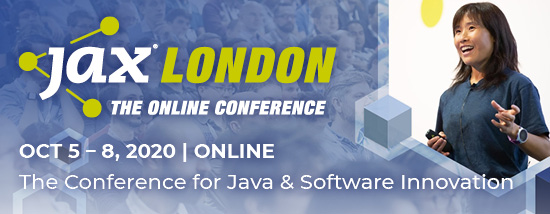A research study by The National Center for Women & Information Technology showed that “gender diversity has specific benefits in technology settings,” which could explain why tech companies have started to invest in initiatives that aim to boost the number of female applicants, recruit them in a more effective way, retain them for longer, and give them the opportunity to advance. But is it enough?
Three years ago, we launched a diversity series aimed at bringing the most inspirational and powerful women in the tech scene to your attention. Today, we’d like you to meet Lin Cherry, Chief Legal Officer and head of diversity and inclusion at Wizeline.
Today’s Woman in Tech: Lin Cherry, Chief Legal Officer and head of diversity and inclusion at Wizeline
 Lin Cherry is Chief Legal Officer and head of diversity and inclusion at Wizeline. She oversees all legal matters for the company and has worked as an international corporate lawyer for over 20 years across technology, media, and sports. Prior to Wizeline, Lin served as General Counsel at HBO Latin America, DLA, Inc. (a subsidiary of América Móvil), and MySpace. She has a Bachelor of Science (B.S.) in Finance from The George Washington University and a Juris Doctor (J.D.) from the University of Florida.
Lin Cherry is Chief Legal Officer and head of diversity and inclusion at Wizeline. She oversees all legal matters for the company and has worked as an international corporate lawyer for over 20 years across technology, media, and sports. Prior to Wizeline, Lin served as General Counsel at HBO Latin America, DLA, Inc. (a subsidiary of América Móvil), and MySpace. She has a Bachelor of Science (B.S.) in Finance from The George Washington University and a Juris Doctor (J.D.) from the University of Florida.
When did you become interested in technology?
My first in-house legal role was at DIRECTV. At that time, satellite TV felt innovative, especially for the Latin American and Indian markets where I was working. But just a short time later, in my role as General Counsel of Myspace, I knew that the internet was the future of media distribution and my view on what was innovative took on a whole new meaning. And it is quite fascinating to me, although streaming technology has been around for so many years, how quickly the technology is still evolving and how challenging it has been for the major media companies to achieve full digital transformation at the scale of the companies that began as digital natives.
How did you end up in your career path? What obstacles did you have to overcome?
Both of my parents worked very hard but didn’t push me to achieve great success. They had expectations that were quite traditional at that time – that I would marry, be taken care of, and have a family. My background is good validation for those elephant parents out there. It may not be necessary to put so much pressure on our children to excel. My drive was always internal and I knew my parents would be proud of me when I exceeded their expectations. My career path has resulted from a great deal of luck and then leveraging the luck to build strong relationships. I was lucky to end up in media and technology, which I am passionate about, and also to be able to work for so many great companies around the globe. I am a firm believer though that luck is at the intersection of opportunity and preparedness and hard work does have a way of paying off.
Did you receive support from your family and friends? Do you have a role model?
I have a strong network of family and friends. But the most important support I have had comes from my incredible partner of over 20 years. I always say jokingly that everyone needs a wife! But what I mean is that we all need a partner who will be our biggest cheerleader and will contribute equally to the household and other responsibilities. In terms of role models, it’s every strong woman I’ve ever worked with – especially those who are single moms. I also have so much respect and admiration for the female engineers in a predominantly male world who are instrumental in influencing the future of how we connect with each other through technology. I believe engineers are the new storytellers of our world – connecting people to each other – and we need more women to bring their perspective to how these stories are told.
Did someone ever try to stop you from learning and advancing in your professional life?
I was never stopped from learning or advancing but I have been in many situations where my voice wasn’t heard, the opportunities weren’t offered to me, or I wasn’t encouraged to stretch, and as a result, I lost confidence in myself. But the lesson I’ve learned is that someone can’t stop us unless we let them and we need to push past those people and persist. I’ve also learned, in managing people – especially women and others who are underrepresented – how important it is to provide encouragement, support, and the opportunity to succeed.
A day in Lin’s life
I am Chief Legal Officer and Head of Diversity and Inclusion for Wizeline. We design and build technology and provide other services that meet the needs of clients in the digital world. My team and I handle all legal matters on a global basis across the company. We have great tech tools in place to help us communicate with colleagues and juggle a wide variety of projects. I am particularly interested in how technology can increase efficiency in legal operations. I also sit on the executive committee of the company where broad strategic topics are discussed and decisions are made. In addition to the legal matters of the company, I work to advance diversity and inclusion throughout the company and within the communities where we operate. I am fortunate we have a culture that empowers and inspires our employees to take ownership and action in this area and that much of my job involves promoting and supporting our amazingly talented employees who lead and are involved in important initiatives that they are passionate about.
I am a firm believer though that luck is at the intersection of opportunity and preparedness and hard work does have a way of paying off.
What are you most proud of in your career?
I am most proud of and put the highest value on, the long-term relationships I have developed over the years – especially with my teams and counterparts on the other side of the negotiating table – because this represents my hard work, professionalism, loyalty, care, and respect for others.
Why aren’t there more women in tech?
To be successful, efforts in the area of diversity and inclusion must be authentic. It’s this level of authenticity that impacts how many women candidates we can attract, the conversion of those candidates to actual hires, and the success of those women in advancing through the organization. Contributing to this authenticity is having women in the C-suite to ensure that employees are empowered to take actions to advance diversity and inclusion, that those actions are valued and are properly incentivized. But the fact is that women in senior management are underrepresented. Women in the C-suite grew only to 21% in 2020 according to McKinsey’s Women in the Workplace Report. This is an area where companies need to do better. And I am encouraged by the recent wave of corporate social responsibility. Companies have the power to change the world and that’s no truer than today when we have technology companies that are larger than ever before and have the power, and I think, the responsibility to use that power to advance diversity and inclusion and bring balance and equity to their corporate structures.
Could you name a few challenges (or obstacles) women in tech face?
One of the biggest challenges I see facing women in technology is unconscious bias. Sarah Cooper does a great job of making us laugh about it here. But it’s no laughing matter because experts tell us that we all have unconscious biases and the adverse impact on women is unmistakable. But the good news is that something can be done about it. We must first acknowledge that biases exist, recognize those biases, and then be more conscious to avoid negative bias in the decisions we are making. We use a great training tool called 50 Ways to Fight Gender Bias. It’s basically a virtual deck of flashcards that presents a variety of situations where biases exist and provide a framework within which to discuss them and explore how best to address them in real-time when we find ourselves in the same or similar situations.
Would our world be different if more women worked in STEM?
My answer is a resounding yes. The world would be infused with a different and critical perspective and most importantly, more feeling. I recently read an opinion piece by Samantha Hunt in the New York Times titled “Feeling things is an act of bravery”. The line I love most is: “Our girls are explorers and experimenters. Why then not listen to our deepest feelers, those humans who might provide us with a blueprint for the best most human way forward?” This encapsulates my view about why we need women in STEM. Our approach needs to weave in an additional level of feeling to most creatively and effectively solve the world’s greatest challenges such as climate change, and to build technology that addresses an expanded view of the world.
Our approach needs to weave in an additional level of feeling to most creatively and effectively solve the world’s greatest challenges such as climate change, and to build technology that addresses an expanded view of the world.
The discussion about diversity is gaining momentum. How long will it take to see results from the current debate?
We can see great momentum coming out of the events of 2020 in Kamala Harris being sworn in as Vice President of the U.S. and on day one of the Biden/Harris administration, with the enactment of executive orders promoting equality. These are concrete examples of real movement and hopefully indicative of what we will see throughout 2021. I think it’s incredibly important that publications like JAXenter are reporting on ways that companies can effectively advance diversity and inclusion. I recently learned about another publication being launched in February, The Filament, that will seek to elevate the conversation around diversity and inclusion by promoting best practices and focusing on success metrics. This is essential to building a community of diversity and inclusion leaders and creating a rising tide that will lift us all.
What advice (and tips) would you give to women who want a tech career?
Women engineers offer a critical perspective as they tell a story through technology that will change and influence people’s lives on a global basis. Tech companies need your perspective – your unique sensitivity and your way of emotionally connecting with other people – to be reflected in our digital products and platforms. It’s a great time for women and other underrepresented groups. There’s strong momentum with recent events and all eyes are on companies to take real action that will make a meaningful impact.
More Women in Tech:
- Women in Tech: “The prerequisite is pleasure in problem-solving”
- Women in Tech: “Join meetups and other women tech groups”
- Women in Tech: “Degrees can matter but they aren’t required”
- Women in Tech: “The IT sector requires a lot of energy and will”
- Women in Tech: “I got to be a self-taught, self-managed, problem solver”
For even more Women in Tech, click here
The post Women in Tech: “Engineers are the new storytellers of our world” appeared first on JAXenter.
Source : JAXenter






















